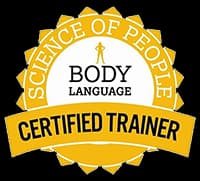
Turning Meetings Into Opportunities
|
We know pressure makes diamonds, but it can also ruin meetings. Today we’re going to talk about avoiding the latter. |
Last month I heard from many teams about the struggle of having an awesome meeting and then reaching that inevitable moment of asking for business.
How do we continue to forge new relationships, and secure new clients without squashing our connections with unnecessary pressure?
Prepare the next step before it happens.
This is how we ensure that our meetings are both a positive experience for the person we’re meeting with and we’re opening opportunities for business growth.
Remember: 86% of clients say EXPERIENCE is just as important as the product or service.
In this edition of Sales Forward, we’re diving into the art and science of a good meeting: turning meetings into opportunities and preparing for success.
|
|
||||
The Meeting DilemmaWe’ve all been there — a promising meeting that ends with a handshake and a promise to “be in touch.” But what happens next? Without a clear plan of action, even the most exciting discussions can fizzle out, leaving potential opportunities untapped. It’s so common that 68% of sales are lost due to poor follow-up. Don’t lose your sale due to this!
|
Put it into practice by remembering: SAND
One effective strategy is adopting the “Next Step” approach. Instead of leaving the meeting without a concrete plan, take the initiative to propose specific actions for moving forward. Whether it’s scheduling a follow-up meeting, providing additional information, or outlining a timeline for decision-making, clarity is key.

Imagine this scenario — You’ve just wrapped up a successful meeting with a potential client. Instead of leaving the next steps to chance, take control of the narrative by proposing a clear path forward. Remember SAND.
- SUMMARIZE — In a few sentences, recap what you discussed and what you heard their needs are. It may feel repetitive, but summarizing things they shared with you will show your listening skills and remind them why they took the meeting.
- ASK — It can feel awkward to ask directly, so make the communication feel better by reframing it. How do you feel about what was discussed and moving forward with next steps? Is there anything missing that you need? It seems like what we covered may be a good fit for you, what do you think?
- NEXT STEP — Be sure to outline the next step after this meeting ends, so nothing is left to chance. By proactively preparing for the next steps, you demonstrate professionalism, commitment, and a genuine interest in fostering a successful partnership.
- DATE — The most important part of next steps is setting the date. Getting in the habit of scheduling the next call or meeting before parting will make sure a lead never falls through the cracks.
In sales, success isn’t just about the initial meeting — it’s about what comes next. By proactively preparing for the next steps, you position yourself for success and ensure that every interaction is a step toward achieving your goals.
Empowering Sales Through Presence:
Mastery of power skills is the catalyst for success in modern sales. We contribute to advancing the growth of your sales teams through:
- Keynote Speaking – Equip your team with the tools and energy needed for your events.
- Group Training – Choose a standalone session or a series for continuous support.
- 1to1 Coaching – Customized sessions to meet each team member’s unique development needs.
Related articles
Today we’re going to talk about how these three can unlock your potential as a powerful communicator. Public speaking. Boundries. Vulnerability.
Today we’re going to talk about how these three can unlock your potential as a powerful communicator. Public speaking. Boundries. Vulnerability.
Did you have a stellar Q1? Good for you! Don’t get comfortable! Now what? Did you have a not-so-stellar Q1? Way to notice where you are! Now what?







